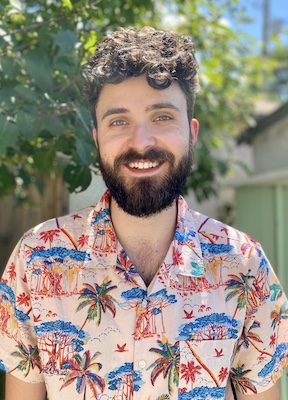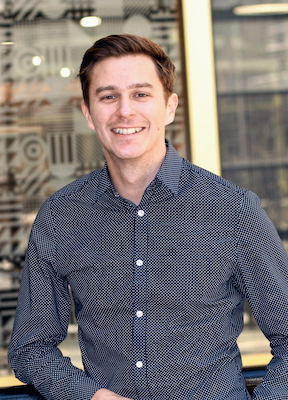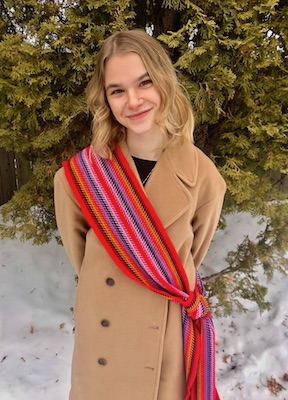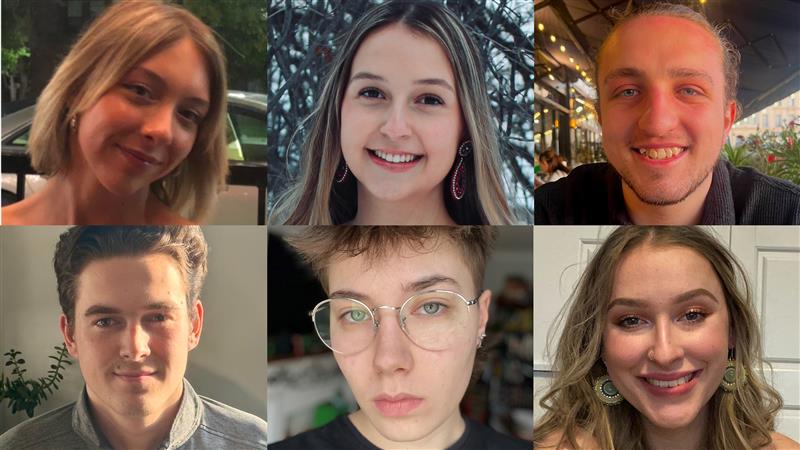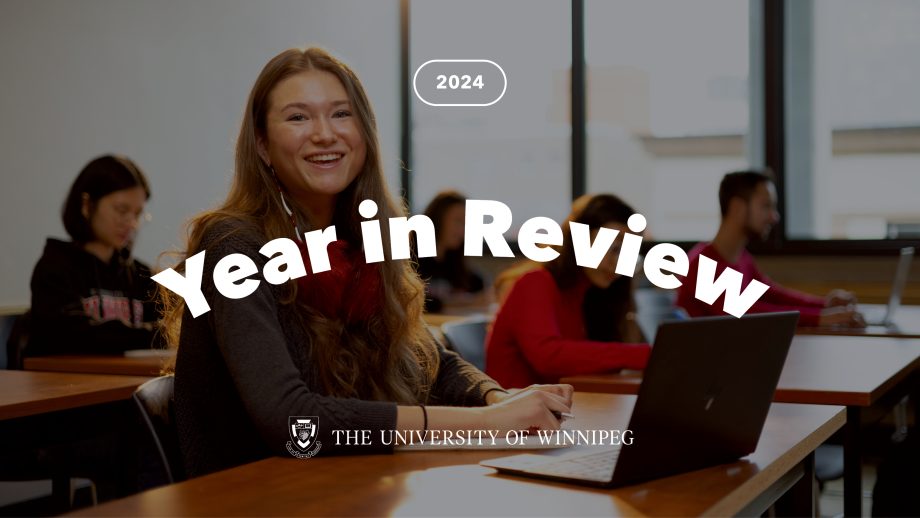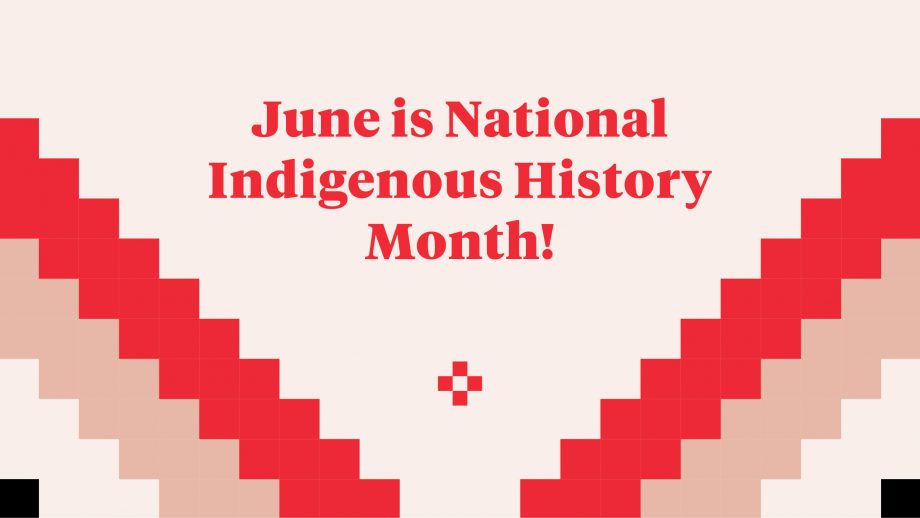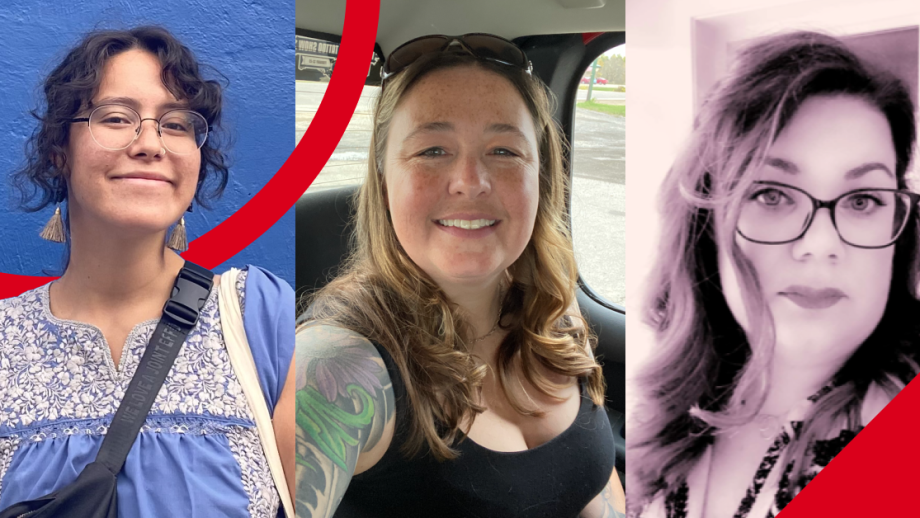As Louis Riel Day nears, The University of Winnipeg is proud to celebrate the achievements of 54 Métis students who were awarded Louis Riel Bursaries during the fall 2020 term. Since 1999, the Manitoba Metis Federation (MMF) and its educational arm, the Louis Riel Institute (LRI), through funding from Employment and Social Development Canada, have provided more than $2 million in bursaries to Métis students attending UWinnipeg.
“We are grateful the Manitoba Metis Federation continues to partner with The University of Winnipeg to generously support Métis students as they work to achieve their dreams,” said Dr. James Currie, Interim President and Vice-Chancellor. “Whether it’s teaching the next generation of students, making health care more accessible in northern communities, or volunteering in the fight against COVID-19, this year’s recipients will, and already are, making important impacts in their communities.”
Approximately 10 per cent of UWinnipeg students self-identify as Indigenous, and half of those students are Métis — among the highest participation rates across Canada.
Meet some of the extremely talented Louis Riel Bursary recipients:
Cassidy Lamirande – Biochemistry
Improving rural communities’ access to health care is Cassidy Lamirande’s dream.
After she finishes her studies at UWinnipeg, the second-year biochemistry major plans on taking her Medical College Admission Test and entering medical school on the way to achieving her professional goal of becoming a doctor.
“My dream would be to open more hospitals in northern communities where healthcare and access to doctors is limited,” she said
After learning about the Louis Riel Bursary, Lamirande immediately applied. As a proud Métis student, she said it was important for her to see a student award created specifically for Métis students.
“I believe it is very important to offer this bursary to Métis students as there are not many funding, scholarships, and bursary opportunities for us as a lot of Indigenous scholarships do not include Métis students,” she said.
Thanks to the financial aid, Lamirande has been able to completely dedicate time to her studies.
She’s also seen an improvement in her mental health thanks to not having to take out student loans to pay for tuition.
“This bursary has completely calmed my anxiety during the first few months of school, as I was very stressed trying to find a source to pay my tuition,” she said. “I would just like to thank the donors so very much for helping so many students, including me, achieve academic success and become less stressed on tuition and more focused on their academics and future.”
Ben Roloff – Education, English, and Indigenous Studies
Ben Roloff is an aspiring educator who values inclusivity in his teaching.
Now in the After-Degree Program, his decision to pursue education was influenced by many teachers and experiences. He credits the teaching styles of his band teacher Taylor Schmidt and English teacher Ryan Paziuk for inspiring him and the priorities to carry with him as a future educator.
“Inclusive classroom spaces, engaging and meaningful content, and the opportunity to dialogue and not simply be passive learners,” he said. “I have also had teachers model opposing priorities, and I would be remiss to not cite them as influences, albeit for different reasons.”
Thanks to the financial assistance that comes with the bursary, Roloff has really been able to focus solely on his studies this academic year.
While receiving the funding is an important aspect of the Louis Riel Bursary, Roloff says it means more than just financial assistance.
“As a Métis scholarship, the Louis Riel Bursary is particularly significant to me in that it affords the opportunity to reflect on where the bursary comes from, why one ‘qualifies’ as an individual, and how one can give back to the Métis community,” he said. “While most scholarships and bursaries are personal, the Louis Riel Bursary has extended well beyond financial assistance for me — it is a gift toward knowledge and experiences that I will have the opportunity to reciprocate through my eventual role as an educator.”
After graduating in the spring of 2022, Roloff plans to move into a career in education. In the future, he plans on furthering his education through graduate studies or a post baccalaureate.
“As an educator, I will strive to make the classroom a space for conversation, exploration, and engagement, where students have the opportunity to learn from myself, one another, content, and experiences.”
Chloe McLeod – Sociology and Education
“Education is the key to change and an award like this brings Indigenous students one step closer to being that change.”
Chloe McLeod is passionate about education. Now in her third year of studies, McLeod is completing her sociology degree this term with plans on pursuing the After-Degree Program in the Faculty of Education this fall.
While she was pulled in many different directions academically after starting university, her childhood dream of becoming an educator was too much to overlook.
“I realized nothing has really intrigued me and inspired me more than the idea of becoming an educator,” McLeod said. “When I was young, I had my entire bedroom set up to mimic an elementary school classroom. My students were my stuffed animals. They each had their own student portfolios.”
Being supported during her studies with the Louis Riel Bursary has been incredibly meaningful for McLeod, who applied for the first time this past fall.
The support for her, she said, is also support for the Métis community she comes from and is proud to represent.
“The Louis Riel Bursary is not only a financial advantage, it’s both a reminder and a symbol of the strength of the Métis people in Manitoba,” she said. “Indigenous students will graduate inspired, motivated, and excited to help other Indigenous students excel.”
Like many others, the pandemic has left McLeod anxious about her job prospects this summer, especially as she hopes to find something relevant to her field which is very socially centered.
Receiving the bursary, however, has eased financial stresses and allowed McLeod to focus more on helping her community.
“I would like to be able to spend more time giving back to my community,” she said. “This can be difficult when trying to juggle work and school and still barely making ends meet. I feel so much closer to the kind of balance I hope to achieve.”
Morgan Rhea Wood – English
Morgan Rhea Wood’s love of English started early in life.
Both her parents were librarians, so she grew up surrounded by books and soon developed a passion for writing short stories and plays.
That passion led to her to UWinnipeg where she’s studying English. Three years into her degree, Wood learned about the Louis Riel Bursary, decided to apply, and became a recipient.
“Without this support, I could never even dream that going to graduate school would be an option,” she said. “If this is the path I end up choosing to take, I would be the first person in my family to do so. It has opened so many doors for me and allowed me to not feel embarrassed or ashamed about my dreams.”
While she isn’t sure where a master’s in English will take her, Wood is hoping to teach or work in academia. She credited Dr. Margaret Sweatman for enhancing her passion for the subject and really taking the time to learn about her and her interests.
While the financial assistance that comes with this bursary is extremely important to Wood, she also sees it as a way to recognize the founder of Manitoba.
“Manitoba has always had a strong Métis backbone, and this bursary has really cemented the importance for Métis individuals in the academic field,” she said. “I also see it as a way of honouring Louis Riel, who is such an important figure in Canadian history. It gives respect back to his name after he has been smeared for so many years.”
Josh Swain – Biology
Josh Swain is no stranger to the Louis Riel Bursary. He’s been a recipient four of the five years he’s studied at UWinnipeg,
Between finishing his final year of classes during a global pandemic and volunteering as vice-president of the UWinnipeg Chapter of the Indigenous Science and Engineering Society, receiving this funding was incredibly important.
“This bursary is especially important this year when things have been so chaotic, and many students are without work or have seen a sharp reduction in income,” he said. “These funds help students stay on track and focused on their education with a little less stress about their financial situations.”
UWinnipeg’s continued efforts to support its Indigenous student body — especially Métis students — has been applauded by Swain.
“This award is important not only to recognize the hard work that Métis students are putting in to further their educations, but also to support the many students that often have not had the same opportunities as others,” he said.
Now, as he wraps up his final term, Swain is looking ahead to his future studies.
He’s currently applied to three master’s programs, including two at McGill University: one in epidemiology and one in public health.
“I just want to say how grateful I am for the opportunities I have been given while pursuing my education here. Not only the financial support opportunities but the support that many of the faculty and campus organizations provide to Indigenous students.”
Gracie Grift – Biochemistry
Studying, working, and volunteering during a global pandemic hasn’t been easy for Gracie Grift.
But thanks to the Louis Riel Bursary, the first-year biochemistry major has been able focus her time on her studies and not on financial hurdles.
“The Louis Riel Bursary has been a large help this year in allowing me to pursue the course of studies that I am passionate about without financial worry,” she said. “This has been especially important this year since everything has been such an unknown due to Covid-19.”
Working fewer hours has allowed Grift to spend her free time pursuing volunteer opportunities and actively participating with multiple student groups.
When she’s not attending classes, you can find her at Seven Oaks Hospital.
“I am a volunteer and currently in the position of PPE preparation in order to aid in the fight against COVID-19,” she said. “I am usually in the position of friendly visitor where I visit long-term patients at the hospital.”
Grift is also a member of the Biology Students’ Association, UWSA Campaigns and External Relations Committee, UWinnipeg Chapter of the Canadian Indigenous Science and Engineering Society, and Co-President of the Indigenous Students’ Association.
“I am extremely passionate about Indigenous student leadership and the Louis Riel Bursary has provided me with the financial stability to be able to dedicate my time to many of the wonderful student groups here on campus focused on this,” she said. “It is a comforting feeling knowing I have so many people standing up and supporting me in this world.”
The Louis Riel Bursary is available to Métis students attending participating Manitoba universities. Students are eligible to apply for this award every year they are at UWinnipeg.


